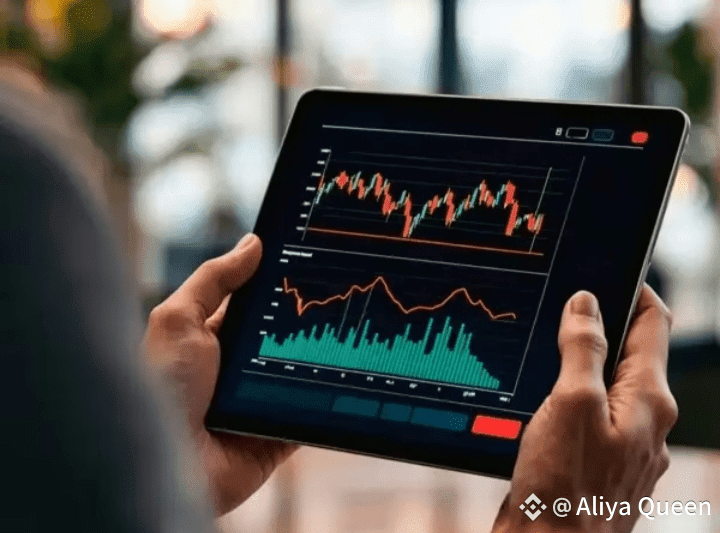How blockchain technology is challenging the exclusivity of private equity and creating new pathways for retail investor participation
The Great Private Market Paradox
Imagine being able to own a piece of SpaceX's mission to Mars, or holding equity in OpenAI as it reshapes artificial intelligence. For the average investor, these opportunities remain tantalizingly out of reach—locked behind the velvet rope of private markets that cater exclusively to institutional giants and ultra-high-net-worth individuals.
This exclusion comes at a tremendous cost. Over the past quarter-century, private markets have generated approximately three times the value creation of their public counterparts, yet 99% of investors remain shut out from these extraordinary returns. The irony is stark: while retail investors fuel the public markets that these companies eventually enter, they're systematically excluded from the wealth-building phase where the most substantial gains occur.
The Tokenization Promise: Revolution or Repackaging?
Enter tokenization—the process of converting real-world assets into digital tokens on blockchain networks. Proponents argue this technology could fundamentally democratize private market access by enabling fractional ownership, 24/7 global trading, and dramatically lower barriers to entry. But is this truly revolutionary, or merely old wine in new bottles?
Beyond Simple Digitization
The most compelling aspect of tokenized pre-IPO equity isn't just the technological wrapper—it's the potential to restructure fundamental market dynamics. Traditional private equity markets suffer from several critical inefficiencies:
Liquidity Deserts: Private equity investments typically lock up capital for 7-10 years, creating a liquidity premium that inflates required returns and excludes smaller investors who can't afford such long holding periods.
Information Asymmetries: Institutional investors enjoy privileged access to company information, management teams, and deal flow that retail investors can never match.
High Minimum Investments: Typical private equity investments require millions in capital commitments, automatically filtering out all but the wealthiest participants.
Geographic Constraints: Private market opportunities are often concentrated in specific financial centers, limiting global participation.

Tokenization potentially addresses each of these barriers through programmable smart contracts, global accessibility, fractional ownership, and enhanced transparency through blockchain records.
Pioneering Platforms: The Early Movers
Several innovative platforms are already testing the waters of tokenized private equity, each taking distinct approaches to market access:
Ventuals: The Synthetic Approach
Ventuals creates derivative instruments that track private company performance without requiring direct equity ownership. This approach sidesteps many regulatory hurdles while providing price exposure to pre-IPO companies. However, it introduces counterparty risk and may not provide the same governance rights as direct ownership.
Jarsy: The Fractional Model
Jarsy focuses on true fractional ownership of private equity stakes, using blockchain technology to manage shareholder records and enable secondary trading. This approach maintains the benefits of actual equity ownership while reducing minimum investment thresholds from millions to thousands of dollars.
PreStocks: The Prediction Market Hybrid
PreStocks combines elements of prediction markets with equity exposure, allowing users to take positions on pre-IPO company valuations. While innovative, this model raises questions about whether participants are truly investing or merely speculating on price movements.
The Innovation Imperative: What's Really Needed
Current tokenization efforts, while promising, still largely replicate existing financial structures in digital form. True innovation requires addressing deeper systemic issues:
Dynamic Pricing Mechanisms
Traditional private equity relies on infrequent, often quarterly valuations that can be months out of date. Tokenized platforms could implement continuous pricing mechanisms using algorithmic models that incorporate real-time market data, comparable company metrics, and sentiment analysis.
Programmable Governance Rights
Smart contracts could automatically distribute voting rights, dividend payments, and information access based on token holdings, creating more democratic corporate governance structures that scale efficiently regardless of the number of shareholders.
Cross-Platform Liquidity Pools
Instead of isolated tokenization platforms, the future likely involves interconnected liquidity pools that allow tokens to trade across multiple venues, dramatically increasing market depth and price discovery efficiency.
AI-Powered Due Diligence
Machine learning algorithms could democratize investment analysis by providing retail investors with institutional-grade due diligence reports, risk assessments, and performance predictions.
Regulatory Realities: The Elephant in the Room
The most significant barriers to tokenized pre-IPO markets aren't technological—they're regulatory. Current securities laws were designed for a world of paper certificates and centralized exchanges, creating numerous compliance challenges for tokenized assets:
Accredited Investor Requirements: Most jurisdictions restrict private equity investment to accredited investors, limiting tokenization's democratizing potential.
Cross-Border Complications: Global token trading creates complex jurisdictional issues, as different countries have varying regulations for private securities.
Custody and Settlement: Traditional financial infrastructure isn't designed to handle blockchain-based assets, creating operational challenges for institutional adoption.
Market Manipulation Concerns: Regulators worry that retail investor participation in private markets could increase volatility and create opportunities for manipulation.
However, regulatory environments are evolving. The European Union's Markets in Crypto-Assets (MiCA) regulation and similar frameworks in other jurisdictions are beginning to provide clearer guidelines for tokenized securities.
The Network Effect Opportunity
The true revolution in tokenized pre-IPO markets may come not from individual platforms, but from the network effects they create. Consider the potential ecosystem:
Investor Networks: Tokenization could enable the formation of investment DAOs (Decentralized Autonomous Organizations) where retail investors pool resources and expertise to compete with traditional institutional investors.
Global Capital Flows: Blockchain technology could eliminate many friction points in cross-border investment, allowing capital to flow more efficiently to high-growth opportunities regardless of geographic constraints.
Enhanced Price Discovery: Continuous, global trading could provide more accurate valuation signals than the current system of infrequent, private transactions.
Reduced Intermediation: Smart contracts could automate many functions currently performed by expensive intermediaries, reducing costs and increasing returns for all participants.
Case Study: The OpenAI Phenomenon
OpenAI's recent funding rounds illustrate both the opportunity and challenge in private markets. The company's October 2024 round of $6.6 billion and March 2025 round of $40 billion—the largest private financing in history—were accessible only to a handful of mega-investors like SoftBank, Microsoft, and Nvidia.
Had these opportunities been tokenized, millions of retail investors could have participated in OpenAI's growth story. Consider the implications: instead of wealth concentration among a few institutional players, the gains could have been distributed across a global investor base, potentially reducing wealth inequality while providing OpenAI with a more diverse capital base.
The Path Forward: Evolution, Not Revolution
Rather than completely replacing traditional private equity markets, tokenization is more likely to create parallel structures that gradually gain adoption. This evolution will likely follow several phases:
Phase 1: Niche Adoption (Current)
Early platforms focus on specific segments like tech startups or real estate, building regulatory relationships and proving technical feasibility.
Phase 2: Institutional Integration (2-3 years)
Traditional financial institutions begin offering tokenized private equity products to their clients, bringing regulatory clarity and operational sophistication.
Phase 3: Mainstream Acceptance (5-7 years)
Tokenized private equity becomes a standard asset class available through conventional brokerage platforms, with established regulatory frameworks and market infrastructure.
Phase 4: Market Transformation (10+ years)
The distinction between public and private markets begins to blur as continuous, global trading creates more liquid private markets.

Critical Success Factors
For tokenized pre-IPO markets to truly democratize private equity access, several conditions must be met:
Regulatory Harmony: Governments must create coherent frameworks that protect investors while enabling innovation.
Institutional Participation: Traditional financial institutions must embrace tokenization to provide the infrastructure and credibility needed for mainstream adoption.
Technical Standards: Industry-wide standards for token issuance, trading, and custody are essential for interoperability and investor protection.
Education Infrastructure: Retail investors need sophisticated tools and education to make informed decisions in complex private markets.
The Inequality Question
Perhaps the most compelling argument for tokenized pre-IPO markets isn't technological or financial—it's moral. The current system perpetuates and amplifies wealth inequality by reserving the highest-return investments for those who already have significant assets. If tokenization can truly democratize access to private markets, it could help address one of capitalism's most persistent problems: the concentration of wealth-building opportunities among the already wealthy.
However, this democratization comes with risks. Private investments are inherently riskier and more complex than public markets. Expanding access without proper investor protection and education could lead to significant retail investor losses.
Conclusion: Potential Realized or Hype Cycle?
Tokenized pre-IPO markets represent one of the most intriguing applications of blockchain technology to traditional finance. While current implementations may appear to simply digitize existing structures, the long-term potential for transforming private market access is substantial.
The key question isn't whether tokenization will impact private markets—it's whether it will live up to its democratizing promise or merely create new forms of exclusion. Success will depend on navigating complex regulatory environments, building robust technical infrastructure, and creating genuine value for all participants.
As we stand at the intersection of technological capability and regulatory evolution, tokenized pre-IPO markets offer a glimpse into a potentially more equitable financial future. Whether this vision becomes reality depends on the choices made by regulators, technologists, and market participants in the coming years.
The revolution may not be immediate, but the foundation is being laid today. For retail investors locked out of private market opportunities, tokenization offers hope for a more inclusive financial system. For the private markets themselves, it presents both unprecedented opportunities and existential challenges.
The tokenized pre-IPO market is still writing its story—and that story could reshape how we think about investment, equity, and access to opportunity in the digital age.